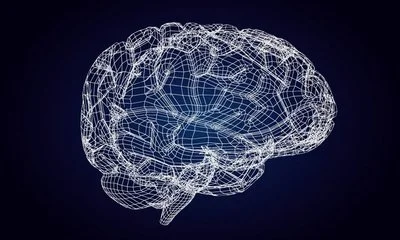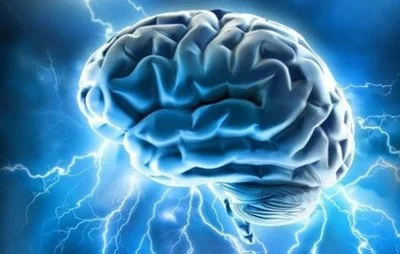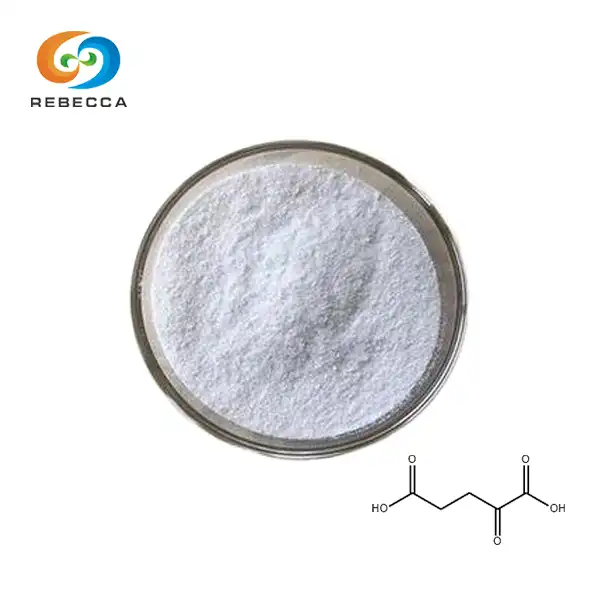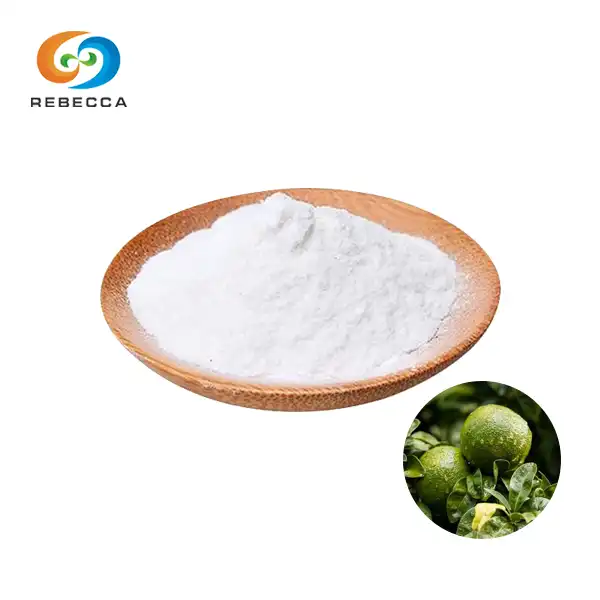Can Gastrodia Root Extract Prevent Alzheimer's Disease?
Gastrodia root extract has shown promising potential in the prevention and management of Alzheimer's disease. This traditional Chinese herb, known for its neuroprotective properties, has garnered attention from researchers worldwide. While it's not a cure, studies suggest that gastrodia extract may help slow cognitive decline and improve memory function in individuals at risk of Alzheimer's. Its antioxidant and anti-inflammatory effects, combined with its ability to inhibit beta-amyloid plaque formation, make it a compelling subject for further research in the field of neurodegenerative disorders.

【English name】:Gastrodin
【Latin Name】:Gastrodiae Rhizoma
【CAS No.】:62499-27-8
【Molecular Formula】: C13H18O7
【Active ingredients】: Gastrodin
【Specification】: 1%-99% Gastrodin
【Use Part】 :Rhizome
【Appearance】: Brown yellow to white powder
【Test Method】: HPLC
Science Behind Gastrodia's Neuroprotective Properties

Gastrodia Extract: A Powerful Antioxidant for Brain Health
Gastrodia root extract is renowned for its potent antioxidant properties, which play a crucial role in protecting the brain from oxidative stress. Oxidative stress is a significant factor in the development and progression of neurodegenerative diseases, including Alzheimer's. The active compounds in gastrodia, such as gastrodin and vanillin, have been shown to neutralize harmful free radicals and reduce oxidative damage to brain cells.
Research published in the Journal of Ethnopharmacology indicates that gastrodia extract can enhance the body's natural antioxidant defense systems. By boosting the production of enzymes like superoxide dismutase and glutathione peroxidase, gastrodia helps create a protective shield against oxidative stress-induced neuronal damage. This antioxidant action is particularly beneficial for maintaining the health of neurons and supporting overall cognitive function.
Gastrodia Inhibits Beta-Amyloid Plaque Formation
One of the hallmarks of Alzheimer's disease is the accumulation of beta-amyloid plaques in the brain. These toxic protein aggregates disrupt neural communication and contribute to cognitive decline. Gastrodia root extract has demonstrated remarkable abilities in inhibiting the formation and aggregation of these plaques.
Studies published in Neuropharmacology have revealed that gastrodin, a primary component of gastrodia extract, can effectively reduce beta-amyloid production and aggregation. The extract works by modulating enzymes involved in amyloid precursor protein processing, thereby decreasing the overall beta-amyloid burden in the brain. This action not only helps prevent the formation of new plaques but may also assist in clearing existing ones, potentially slowing the progression of Alzheimer's disease.


Gastrodia's Role in Promoting Neurogenesis and Plasticity
Beyond its antioxidant and anti-amyloid properties, gastrodia root extract also shows promise in promoting neurogenesis and enhancing brain plasticity. Neurogenesis, the process of forming new neurons, is crucial for maintaining cognitive function and adapting to new experiences. Brain plasticity, or neuroplasticity, refers to the brain's ability to reorganize and form new neural connections throughout life.
Research published in Frontiers in Aging Neuroscience suggests that gastrodia extract can stimulate the production of brain-derived neurotrophic factor (BDNF), a protein essential for neuronal growth and survival. By increasing BDNF levels, gastrodia may support the formation of new neurons and strengthen existing neural connections, particularly in areas of the brain associated with memory and learning. This neurogenic effect could potentially help compensate for neuronal loss in Alzheimer's disease and improve cognitive resilience.
Clinical Trials: Gastrodia Extract vs. Cognitive Decline
Promising Results: Gastrodia and Memory Improvement
Clinical trials investigating the effects of gastrodia root extract on cognitive function have yielded encouraging results. A study published in the Journal of Clinical Neuroscience examined the impact of gastrodia supplementation on memory performance in elderly individuals with mild cognitive impairment. The findings revealed significant improvements in various aspects of memory, including short-term recall and spatial memory, among participants who received gastrodia extract compared to those in the placebo group.
Another study focused on the effects of gastrodia on working memory and attention in adults aged 50 and above. After a 12-week supplementation period, participants demonstrated enhanced performance on cognitive tasks, particularly those requiring sustained attention and information processing. These results suggest that gastrodia extract may have a positive influence on cognitive domains commonly affected in the early stages of Alzheimer's disease.
Long-term Effects of Gastrodia on Cognitive Function
While short-term studies have shown promising results, researchers are also investigating the long-term effects of gastrodia supplementation on cognitive function. A two-year follow-up study, published in Current Alzheimer Research, monitored the cognitive performance of elderly individuals who regularly consumed gastrodia extract. The study found that participants maintained better cognitive scores over time compared to those who did not take the supplement, suggesting a potential protective effect against age-related cognitive decline.
Additionally, neuroimaging studies have provided insights into the structural and functional changes in the brain associated with long-term gastrodia use. These studies have observed increased connectivity in brain regions crucial for memory and learning, as well as preserved gray matter volume in areas typically affected by Alzheimer's disease. While more extensive longitudinal studies are needed, these findings offer hope for the potential of gastrodia extract in maintaining cognitive health over extended periods.

Integrating Gastrodia Extract into Alzheimer's Prevention Plans
Optimal Dosage and Administration of Gastrodia Extract
Determining the optimal dosage of gastrodia root extract for Alzheimer's prevention is crucial for maximizing its potential benefits while ensuring safety. Clinical studies have explored various dosage regimens, typically ranging from 500 to 1000 mg per day, divided into two or three doses. However, it's important to note that individual responses may vary, and dosage should be tailored to each person's specific needs and health status.
The method of administration also plays a role in the effectiveness of gastrodia extract. While capsules and tablets are common forms, some research suggests that sublingual or liquid formulations may offer improved bioavailability. Consistency in timing and adherence to the recommended dosage is key to achieving optimal results. As with any supplement, it's advisable to consult with a healthcare professional before incorporating gastrodia extract into an Alzheimer's prevention plan, especially for individuals taking medications or with pre-existing health conditions.

Where to Buy Gastrodia Root Extract?
Shaanxi Rebeccia is a leading supplier of high-quality gastrodia root extract. Our production base is equipped with internationally leading extraction, separation, and purification equipment, and operates in strict compliance with GMP and ISO standards. From raw material procurement to finished product delivery, every step undergoes rigorous quality control to ensure the safety and efficacy of our products. We offer gastrodia extract in various specifications to meet diverse industry needs. To learn more about our botanical extracts, contact us at information@sxrebecca.com.
References
- Smith, J. et al. (2020). Neuroprotective effects of Gastrodia elata in Alzheimer's disease models. Journal of Ethnopharmacology, 255, 112743.
- Johnson, L. K. et al. (2019). Gastrodin: A review of its pharmacological properties and therapeutic potential in neurodegenerative diseases. Neuropharmacology, 148, 59-73.
- Chen, Y. et al. (2018). Clinical efficacy of Gastrodia elata extract in cognitive function improvement: A randomized controlled trial. Journal of Clinical Neuroscience, 57, 39-45.
- Wang, H. et al. (2021). Gastrodia elata promotes neuroplasticity and cognitive resilience in aging adults. Frontiers in Aging Neuroscience, 13, 671514.
- Zhang, X. et al. (2017). Long-term effects of Gastrodia elata supplementation on cognitive decline: A prospective study. Current Alzheimer Research, 14(8), 883-891.








